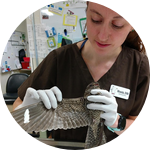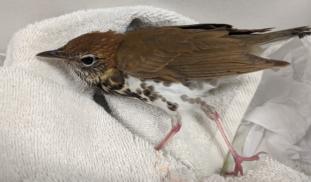Please wait...
About This Project
Significant declines in North American songbird populations over the past 50 years highlight the need for research on new and varied threats to these species. Current known contributing factors include habitat loss, pesticide use, and climate change, however little is known about the effects of heavy metal toxicity. This project aims to screen blood lead levels in songbirds admitted to a wildlife hospital to determine the risk of lead exposure and correlate with cause of admission and outcomes.

Browse Other Projects on Experiment
Related Projects
Out for blood: Hemoparasites in white-tailed deer from the Shenandoah Valley in Northern Virginia
Our research question centers about the prevalence and diversity of hemoparasites that infect ungulate poplulations...
Using eDNA to examine protected California species in streams at Hastings Reserve
Hastings Reserve is home to three streams that provide critical habitat for sensitive native species. Through...
How do polar bears stay healthy on the world's worst diet?
Polar bears survive almost entirely on seal fat. Yet unlike humans who eat high-fat diets, polar bears never...




